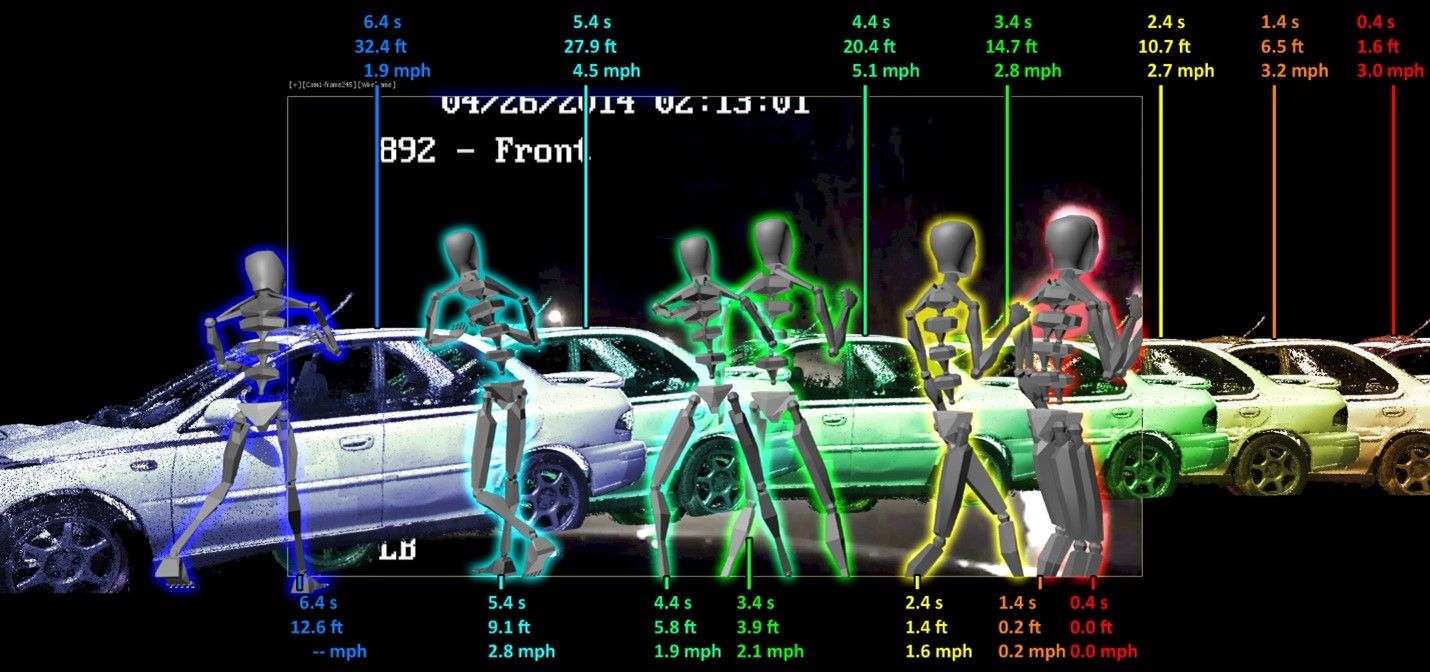Forensic visualization is what’s hot at Knott

FORT COLLINS — A budding technology from a Colorado-based company is helping with structural engineering and historic preservation — and even solving crimes.
“We can basically create a digital copy of everything in our world now,” said Sarah Allen, director of marketing for Knott Laboratory LLC, about its “forensic visualization” process.
Knott Laboratory, headquartered in Denver and including an office in Fort Collins, is the company that recently completed evaluation of the structural integrity of four older hangars at Northern Colorado Regional Airport. Forensic visualization wasn’t needed for that assignment, Allen said, adding that the technology is most useful for issues regarding such incidents as the collapse of a building or an officer-involved shooting.
The company includes 11 departments that focus on different disciplines within forensic engineering.
“We are really serious about putting more depth and analysis to it so our visions are accurate and true to life instead of just backing up something some lawyer says,” Allen said. “We’re passionate about using this technology because it’s such a good tool to find out key issues and get down to truth and accuracy. We’re only interested in scientific fact. We don’t do anything based on conjecture.
“We’re agnostic. We’re engineers. We’re not here to tell your story. We’re here to find the facts of what happened.”
The process of “forensic animation” involved “just creating audiovisual simulations of whatever happened — an incident, an accident, a crime,” she said, “but with forensic visualization we take it a step further.”
Knott’s engineers take laser scanners to the scene that shoot out millions of laser points to create “point cloud,” a massive file containing “millions and millions of data points,” Allen said. The forensic-visualization team uses that to create a three-dimensional recreation of the scene that’s “accurate within millimeters,” she said.
“They can create a digital twin of any scene,” Allen said. “They copy the real world and then put it into the computer and do scientific analysis from it. Whatever may be in question, we can answer those questions.”
Because of the speed and detail at which the data is captured, accident investigators can accurately capture an entire scene or object without having to predetermine what specific data needs to be collected. This gives investigators the ability to reference and analyze all the information throughout the entire reconstruction process from start to finish.
“One of the limitations of 3D laser scanners,” according to Knott’s promotional materials, “is they cannot be used to collect data points on all types of surfaces and in all conditions. For example, highly reflective and glossy surfaces, as well as dark or highly absorptive surfaces, can make capturing point data difficult.”
In high-stress situations, Allen said, “there might be several different stories involved. We’ll come in and scan it with the laser scanner, and build an engineering analysis and visualization,” she said. “We can answer key questions in the case, and we’ll often find the story is different from what has been put forth.
“Our guys are really good; they discuss it and are honest with attorneys and clients,” she said. “In some cases, they’ll say ‘We’re not going to work on this, and this is why.’”
Analyses produced through forensic visualization “are admissible in court,” Allen said, “and both our engineers and visualization experts can serve on the stand as expert witnesses.”
Many of Knott Laboratory’s clients are attorneys for homeowners filing lawsuits alleging construction defects, Allen said, and the same technology can be used to aid architects because “the same technology can be used to do structural engineering and design.
“We’ve also used it for historic restoration — historic buildings around Colorado that need to be refurbished into things like boutique hotels and restaurants.”
The technology has existed for the past 20 years, “but is really only being embraced more in the last five,” Allen said. “The point clouds are getting more dense, more accurate.
“Laser scanning is getting better year after year.”
FORT COLLINS — A budding technology from a Colorado-based company is helping with structural engineering and historic preservation — and even solving crimes.
“We can basically create a digital copy of everything in our world now,” said Sarah Allen, director of marketing for Knott Laboratory LLC, about its “forensic visualization” process.
Knott Laboratory, headquartered in Denver and including an office in Fort Collins, is the company that recently completed evaluation of the structural integrity of four older hangars at Northern Colorado Regional Airport. Forensic visualization wasn’t needed for that assignment, Allen said, adding that the technology is most useful for issues regarding…
THIS ARTICLE IS FOR SUBSCRIBERS ONLY
SPONSORED CONTENT
Federal District Court Rules Corporate Transparency Act Unconstitutional . . . But Most Small Businesses Must Still Comply
Lyons Gaddis Real Estate and Business Attorney Cameron Grant shares important details of the Corporate Transparency Act (CTA).
Continue reading for less than $3 per week!
Get a month of award-winning local business news, trends and insights
Access award-winning content today!


